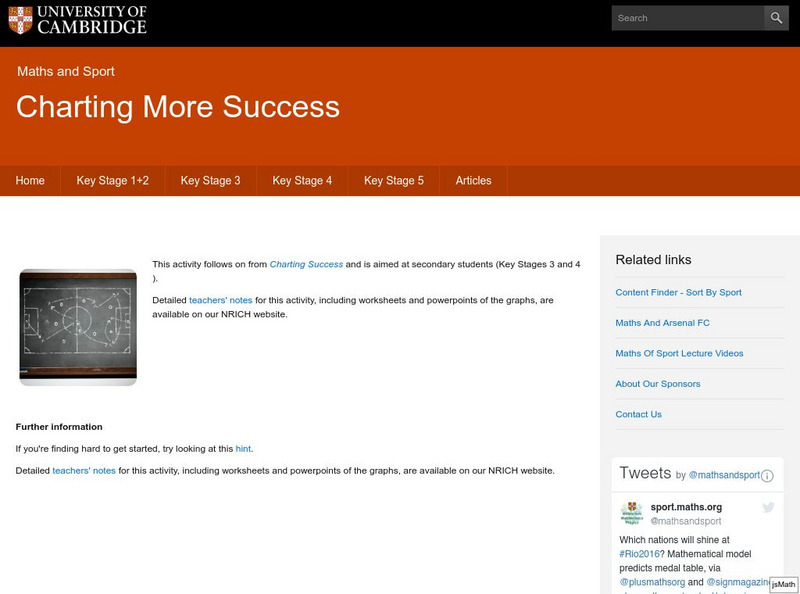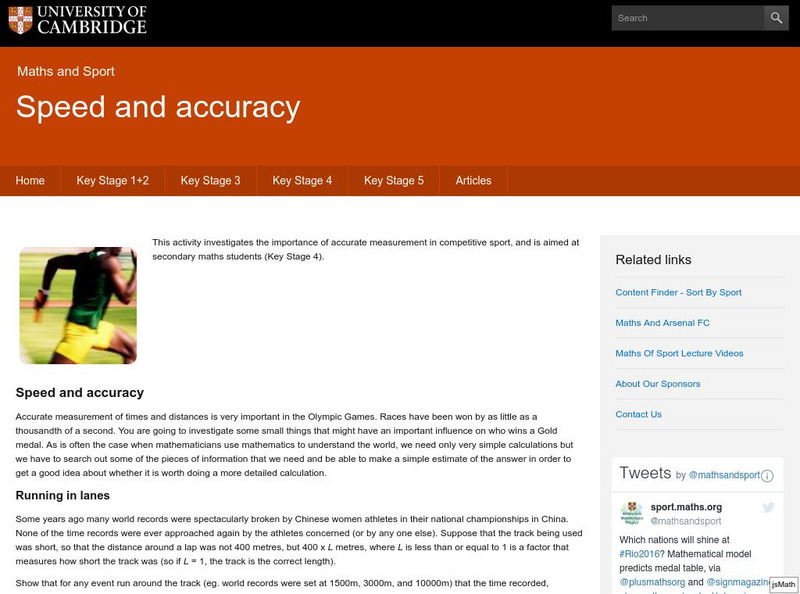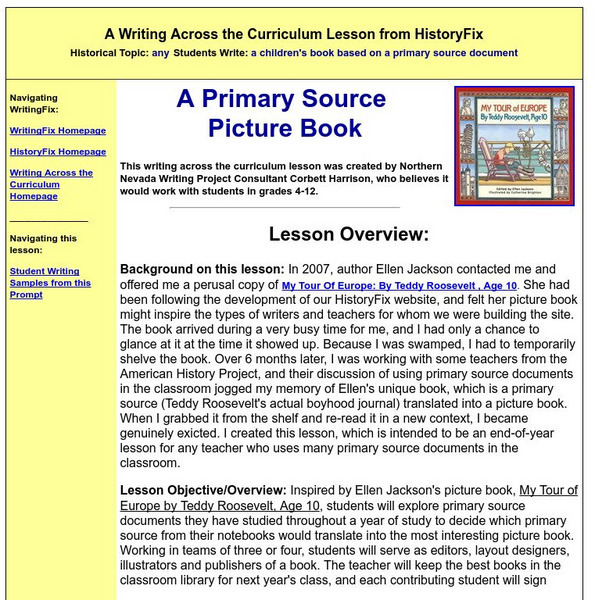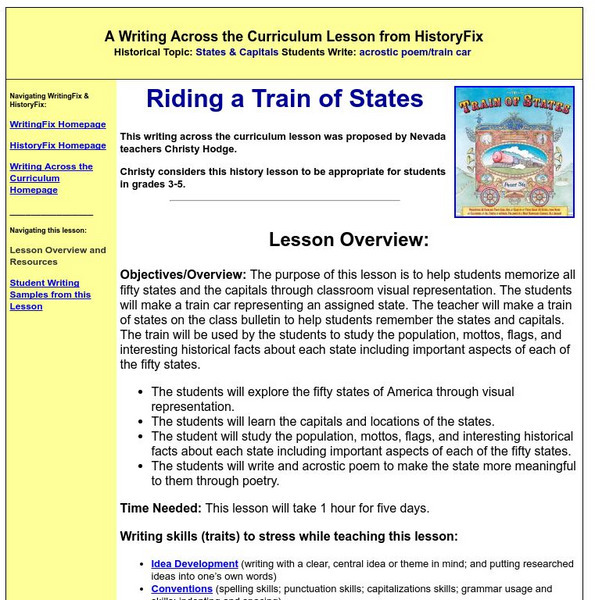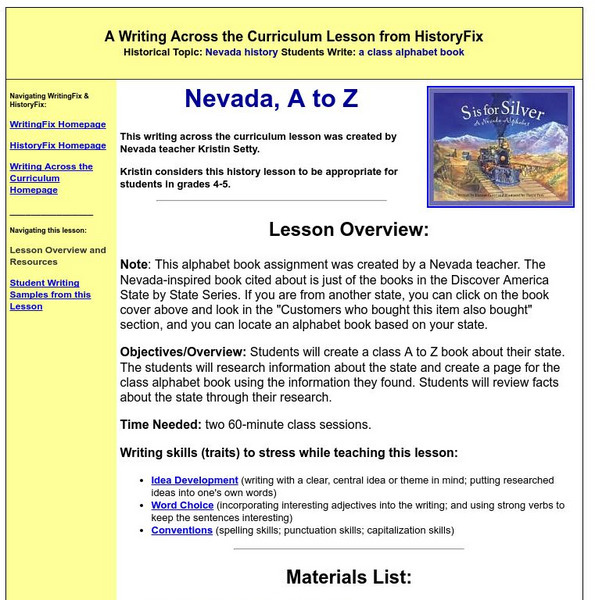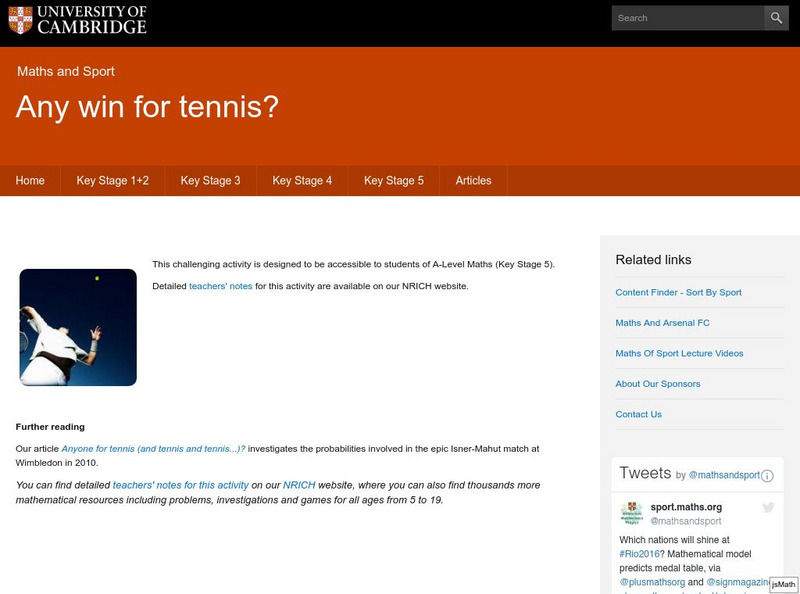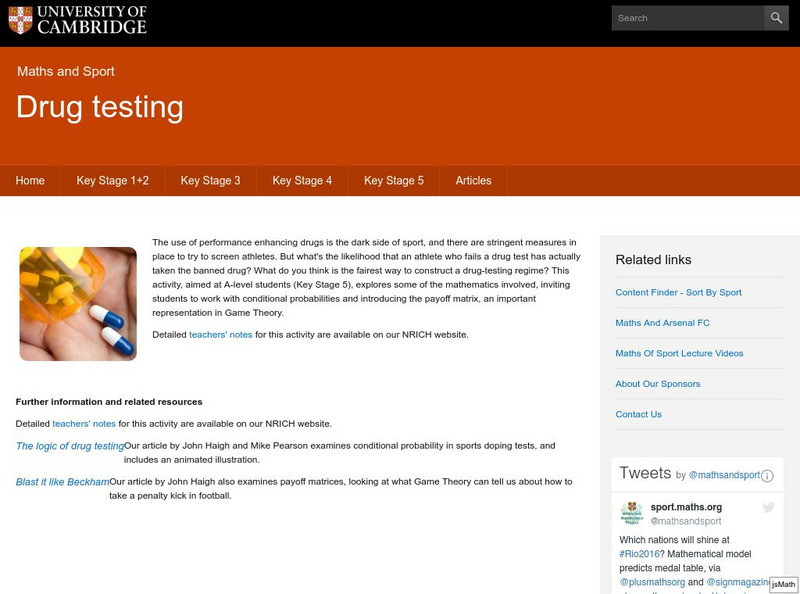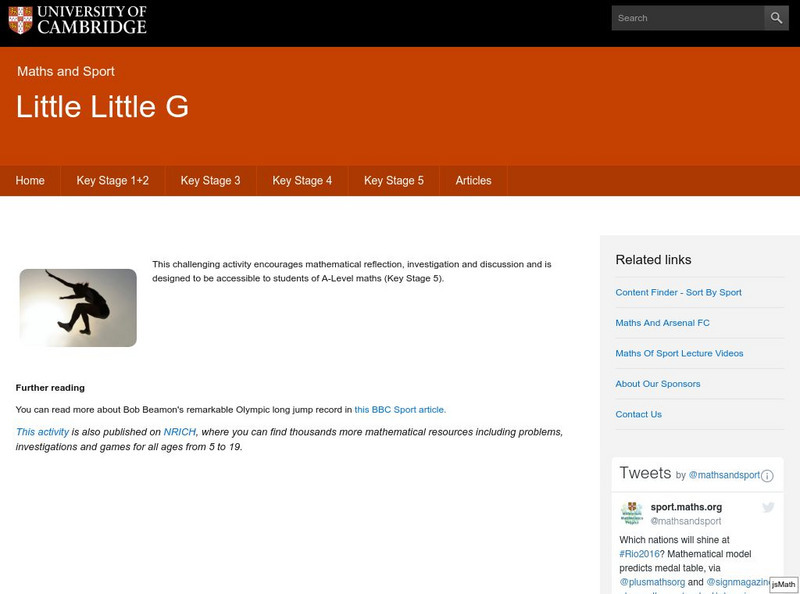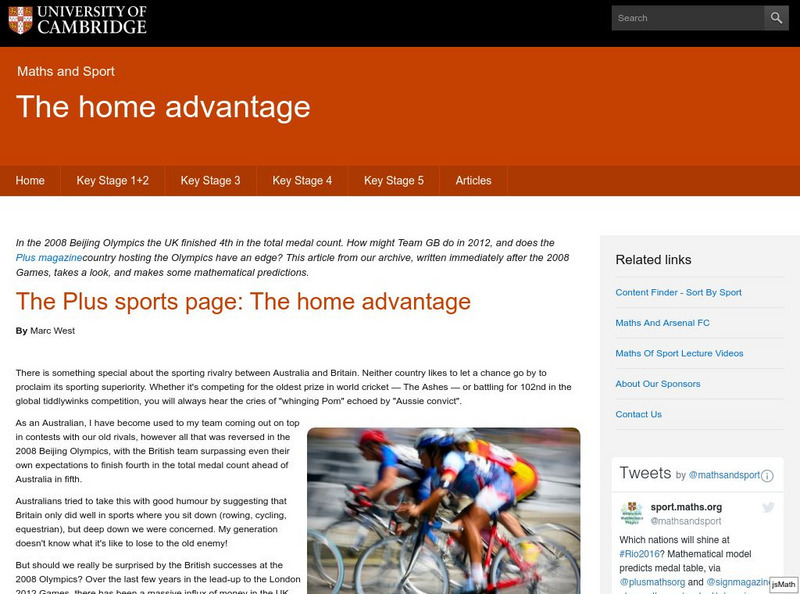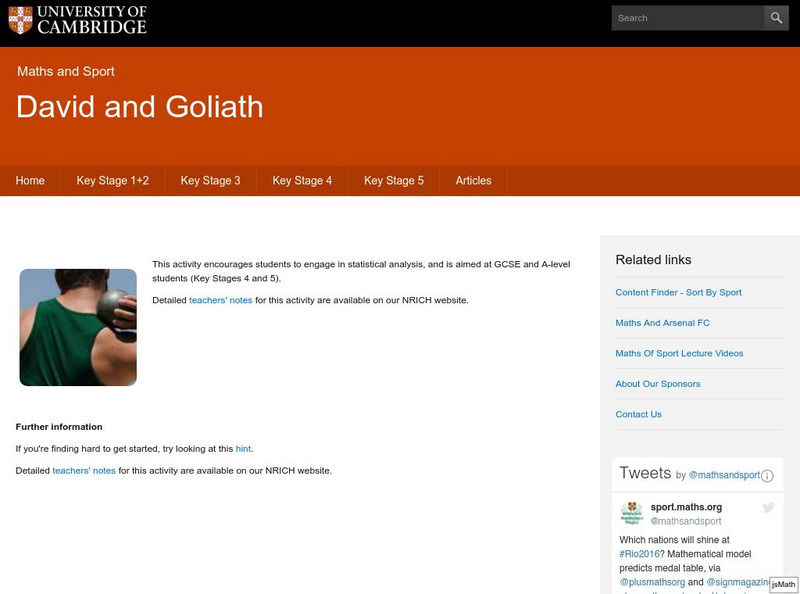Other
Aia Michigan: Architecture: It's Elementary!
The It's Elementary! curriculum guide is home to numerous lesson plans and activities designed for teaching architecture to students in grades K-5. You'll find activities involving math, science, visual art, and social studies. Includes...
Tufts University
Tufts University: Novel Engineering: Books
This collection of classroom books shows how students can identify engineering problems in a novel. Each book is accompanied by a plot synopsis, problems students have noted, and solutions they have come up with and built in their...
Other
The Virtual Vine: The Wheels on the Bus, Unit
A fellow teacher has put together a cross-curricular unit for the song "The Wheels on the Bus." There are lots of games, and project ideas to get students excited about learning.
ArtsNow
Arts Now Learning: Proficient Puppeteers
In this lesson, students create puppets for the characters in a Reader's Theater script called 'Georgia State Animals & Plants: Habitats and Adaptations.' The puppets showcase the adaptations for each plant or animal. Students then...
The National Gallery (UK)
National Gallery, London: Ite: 'A View of Het Steen in the Early Morning' [Pdf]
As part of the National Gallery's Take One Picture project, this PDF offers suggestions for using this Rubens painting in a cross-curricular study in elementary grades.
University of Cambridge
University of Cambridge: Maths and Sports: Charting More Success
This activity follows on from Charting Success and encourages students to consider and analyse representations of data from the world of sport, to make sense of the stories they tell, and to analyse whether the right representation has...
University of Cambridge
University of Cambridge: Maths and Sports: Speed and Accuracy
This activity investigates the importance of accurate measurement in competitive sport, looking at examples from athletics and swimming. It is aimed at secondary maths students (grades 8, 9, and 10).
Writing Fix
Writing Fix: If You Give a Student an Animal
For this lesson plan, the book If You Give a Moose a Muffin, written by Laura Numeroff, is used as a mentor text for word choice. The content focus of the lesson is to teach the students to take ownership of scientific and descriptive...
Writing Fix
Writing Fix: A Primary Source Picture Book
Inspired by My Tour Of Europe, by Teddy Roosevelt, students will create a children's picture book based on a topic of historical study to be used as a primary document.
Writing Fix
Writing Fix: Riding a Train of States
Help learners memorize the states and their capitals with this interactive train-car lesson.
Writing Fix
Writing Fix: The Drinking Gourd
After learning the song Follow the Drinking Gourd by Jeanette Winters, learners will use the Underground Railroad to identify with some goal or task in their own life.
Writing Fix
Writing Fix: States, a to Z
In this instructional activity young scholars will collect information about the state they live in and create an alphabet book of information.
Writing Fix
Writing Fix: Pompeii, I See
In this lesson learners will research the explosion of the Mt. Vesuvius volcano by describing how they think the scene may have occurred in Pompeii.
ReadWriteThink
Read Write Think: The History Behind Song Lyrics
Critical listening, research and historical information are all part of the material in this multi-disciplinary lesson plan.
University of Cambridge
University of Cambridge: Maths and Sports: Angle of Shot
At what angle should you release the shot to break Olympic records? This activity gives students the opportunity to investigate projectile motion in a real-life context, and is aimed at A-level students (grades 10, 11, and 12).
University of Cambridge
University of Cambridge: Maths and Sports: Any Win for Tennis?
What are the probabilities of winning at tennis? This challenging activity is designed to be accessible to students of A-Level Maths (grades 10, 11, and 12).
University of Cambridge
University of Cambridge: Maths and Sports: Drug Testing
The use of performance enhancing drugs is the dark side of sport, and there are stringent measures in place to try to screen athletes. But what's the likelihood that an athlete who fails a drug test has actually taken the banned drug?...
University of Cambridge
University of Cambridge: Maths and Sports: Light Weights
Could the location of the Olympic host city have an effect on weightlifting events? This activity provides an interesting context in which to engage with weight, mass and gravitation, and is aimed at A-level students (grades 10, 11, and...
University of Cambridge
University of Cambridge: Maths and Sports: Little Little G
Could the altitude of the city hosting the Olympic and Paralympic Games have an effect on performance in the long jump? This challenging activity encourages mathematical reflection, investigation and discussion as students explore how...
University of Cambridge
University of Cambridge: Maths and Sports: Making a Racket: The Science of Tennis
As London is heading for the 2012 Olympics, it's not just athletes who are gearing up for action. Engineers, too, are working hard to produce the cutting-edge sporting equipment that guarantees record performances. If you're a tennis...
University of Cambridge
University of Cambridge: Maths and Sports: Model Solutions
What would be the ideal weather conditions for breaking the world record in the shot put? This activity encourages A-level mechanics students (grades 10, 11, and 12) to explore and discuss modelling assumptions.
University of Cambridge
University of Cambridge: Maths and Sports: Pole Vaulting
This activity investigates the mechanics of the pole vaulting event, and is designed to be accessible to A-level maths students (grades 10, 11, and 12).
University of Cambridge
University of Cambridge: Maths and Sports: The Home Advantage
In the 2008 Beijing Olympics the UK finished 4th in the total medal count. How might we do in 2012, and does the country hosting the Olympics have an edge?
University of Cambridge
University of Cambridge: Maths and Sports: David and Goliath
Does weight give shot putters an advantage? This activity encourages students to engage in statistical analysis, and is aimed at GCSE and A-level students (Key Stages 4 and 5).
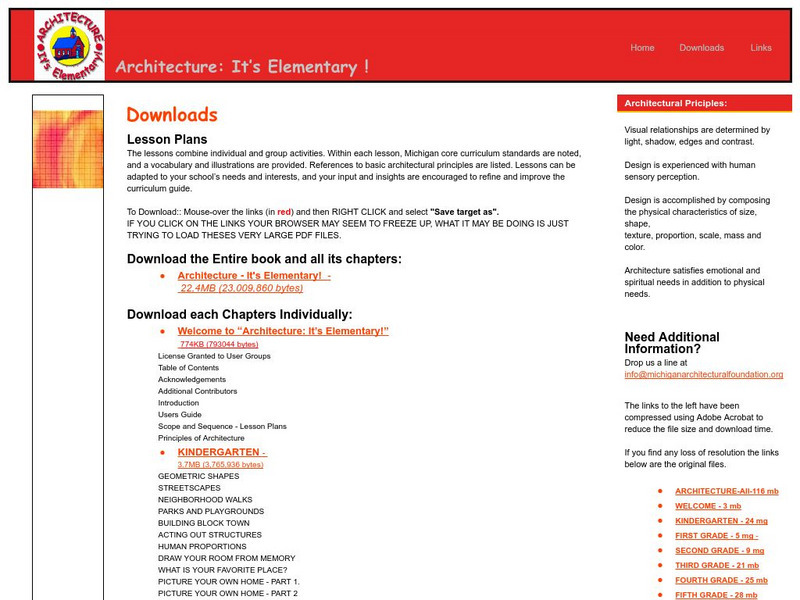


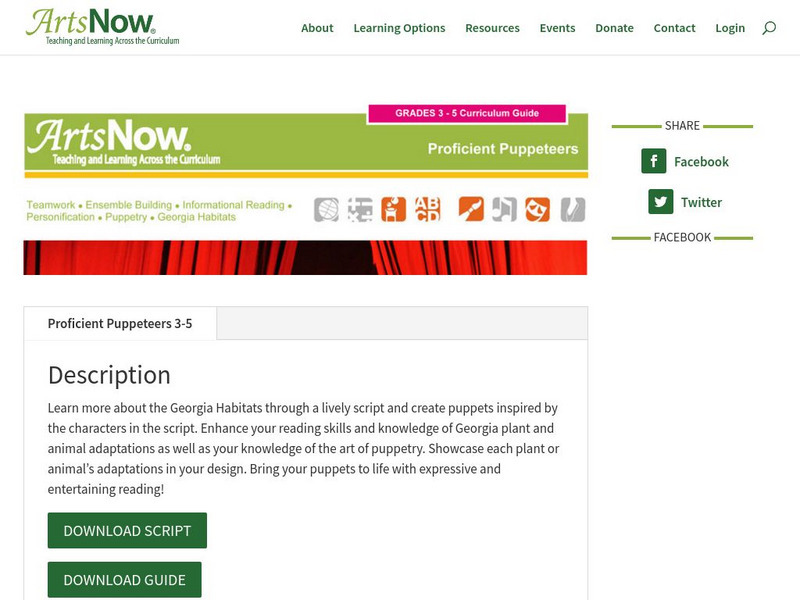
![National Gallery, London: Ite: 'A View of Het Steen in the Early Morning' [Pdf] Lesson Plan National Gallery, London: Ite: 'A View of Het Steen in the Early Morning' [Pdf] Lesson Plan](https://static.lp.lexp.cloud/images/attachment_defaults/resource/large/FPO-knovation.png)
